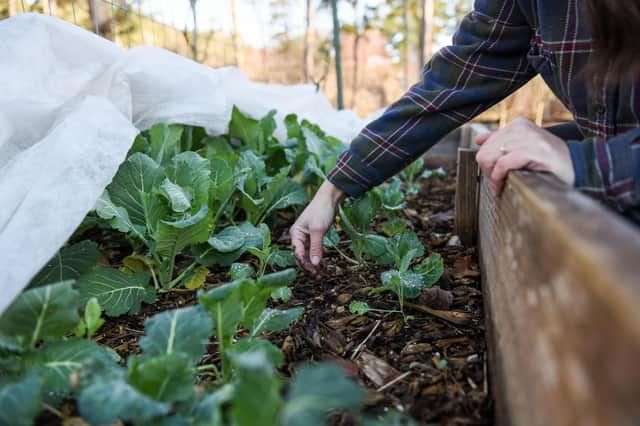Don't put your garden 'to bed' for winter - there's still plenty of enjoyment to be had


The temptation is to draw the curtains and spend more time on the sofa catching up on a bit of telly. So the very idea of going out in the garden seems unappealing – all that mud,
all those bare branches, what’s the point?
However, just because summer has long gone doesn’t mean plants and shrubs are all hibernating.
Advertisement
Hide AdAdvertisement
Hide AdTraditionally, ‘putting the garden to bed’ has meant a full on, proactive tidy up. Leaves collected and mulched, dead foliage cut back, plants that need moving get spliced and relocated, veg beds are covered up in an attempt at weed limitation, the greenhouse (if you’re lucky enough to own one) is cleaned, and plants that freak out at the first sign of a chill are fleeced, or moved indoors.
And then, for the rest of autumn and winter, you stand by the window with a mug of tea, looking out at your hibernating garden and dreaming of spring.
But why this self-imposed lockdown? Why hole up, when in fact, the garden isn’t hibernating, but being neglected, consigned to stasis when you could both benefit from pulling those wellies on and getting outdoors.
It’s something online garden coach and host of the Gardens Weeds & Words podcast, Andrew O’Brien, has highlighted on Instagram.
Advertisement
Hide AdAdvertisement
Hide AdHe calls the concept of putting the garden to bed, “craziness”, and says: “The animals, insects and birds with whom we share our gardens depend on much of the stuff that we might be tempted to cut back or rake up, so if we’re set on creating wildlife-friendly spaces, it doesn’t do to be too meticulous just now.”
And, he adds: “If we’re blessed with a garden, why on earth would we want to ignore it for three months out of every 12?”
He’s not alone in his thinking. Sustainable flower grower Lucy Parker wrote: “I love a bit of winter gardening, it makes me feel alive! Cold fingers and drippy nose,
watching for the signs of new growth.”
Sure, if it’s absolutely pouring, or ice and frost have turned your plot into a skating rink, the garden may not be so alluring, but winter gardening can be so rewarding. Especially if, like me, you get all excited in spring and then become so busy in summer that whatever outdoor space you do have becomes a jungle of nasturtiums and toppled tomato plants.
Advertisement
Hide AdAdvertisement
Hide AdThere’s less distraction as it gets colder, and there’s time to make up with your garden. As autumn and all that golden light takes over, it feels as though time is just stretching out ahead of you.
The frantic green pace of spring is aeons away, and instead you can ponder happily, bundled up in as many fleeces as you can fit under your rain mac. And there’s still stuff to sow, pick and eat (if you’re organised).
My sliver of an allotment is filled with people beginning to sow geometric grids of broad beans and garlic. Kale is waving its fronds, Brussels sprouts are hoping you don’t notice them until at least Christmas, cream-skinned potatoes can still be dug up, and knobbly carrots and frilly winter salad leaves bring fresh bites of joy. It’s also really quiet out there, aside from the odd bird or urban fox.
Even if you don’t have green space of your own, herbs will survive on a windowsill, bird feeders can hang from balconies, and parks are arguably at their prettiest (conkers! frosty seed heads! crisp leaves!) Also, we should be soaking up all the daylight we possibly can.
Give me my gardening gloves – telly can wait.
Comment Guidelines
National World encourages reader discussion on our stories. User feedback, insights and back-and-forth exchanges add a rich layer of context to reporting. Please review our Community Guidelines before commenting.